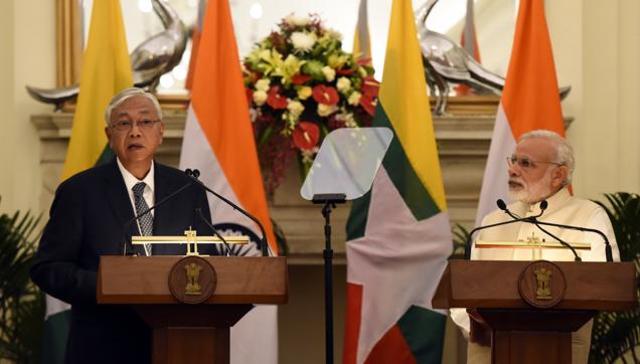-
Tips for becoming a good boxer - November 6, 2020
-
7 expert tips for making your hens night a memorable one - November 6, 2020
-
5 reasons to host your Christmas party on a cruise boat - November 6, 2020
-
What to do when you’re charged with a crime - November 6, 2020
-
Should you get one or multiple dogs? Here’s all you need to know - November 3, 2020
-
A Guide: How to Build Your Very Own Magic Mirror - February 14, 2019
-
Our Top Inspirational Baseball Stars - November 24, 2018
-
Five Tech Tools That Will Help You Turn Your Blog into a Business - November 24, 2018
-
How to Indulge on Vacation without Expanding Your Waist - November 9, 2018
-
5 Strategies for Businesses to Appeal to Today’s Increasingly Mobile-Crazed Customers - November 9, 2018
United Nations rights expert: Upcoming peace conference an opportunity to transform Myanmar
Hundreds of representatives of Myanmar’s ethnic minorities have gathered in the country’s capital for peace talks with the government aimed at ending decades of separatist insurgencies that have claimed thousands of lives.
Advertisement
The first round is expected to last five days, and experts say no breakthrough can be expected in the coming months.
Suu Kyi had visited China two weeks ago to meet its leaders and to seek, among other things, support for the Myanmar peace talks, in which Beijing special envoy Sun Guoxiang is also taking part. “So I do believe we will be successful in getting it at the conference”, said Khun Than Myint, the facilitator of the meeting, which is titled Union Peace Conference – 21st-Century Panglong.
Why are the talks happening now?
The former military-backed government had reached truces with some groups, but has never managed to secure a nationwide deal. The ruling National League for Democracy, led by Aung San Suu Kyi, has made national reconciliation a priority, and Suu Kyi herself said on various occasions that “without peace there can be no sustained development”.
Naing Hantha, deputy chairman of an umbrella group representing 11 armed ethnic groups, is not very enthusiastic about the outcome.
The simple act of bringing the country’s complex array of armed ethnic groups to the negotiating table was respectable in its own right, Johnston said.
But the military, which still holds 25% of seats in parliament, sees its role as resisting the break-up of Myanmar, so are likely to oppose any such move. It also remains unclear, he adds, how much devolution of power Suu Kyi actually wants.
Myanmar shows what is possible, when leaders listen to their people’s genuine aspirations, genuine concerns of the people and genuine dreams of where this country should proceed.
A joint statement released later said, “Both sides reaffirmed their commitment to further strengthen bilateral security and defence cooperation, which is crucial for maintaining peace and stability along the long Indo-Myanmar border”.
On July 1, Yanghee Lee, the United Nations special rapporteur on Myanmar, said Myanmar’s government should immediately end the deep discrimination practiced against the Rohingya and other Muslims in Rakhine. Many Buddhists view Rohingya as illegal immigrants from Bangladesh, even though many have been living in Myanmar for generations.
Many from the million-strong Muslim minority are denied citizenship, voting and work rights, and are reviled in overwhelmingly Buddhist Myanmar.
The departure of the Wa representatives was a “misunderstanding” that could be solved, government peace negotiator Khin Zaw Oo told the AFP news agency.
“I urge you all to continue to face up to your responsibilities, particularly to the youth and children of Myanmar, the future of this wonderful country”, he said.
Nobel laureate Suu Kyi has come under fire from global rights groups for failing to address the plight of the Rohingya.
Advertisement
“This is a unique opportunity for us to accomplish a great task that will stand as a landmark throughout our history”, said Suu Kyi, whose official title is state counsellor although she is the real power in the government, above the president.





























